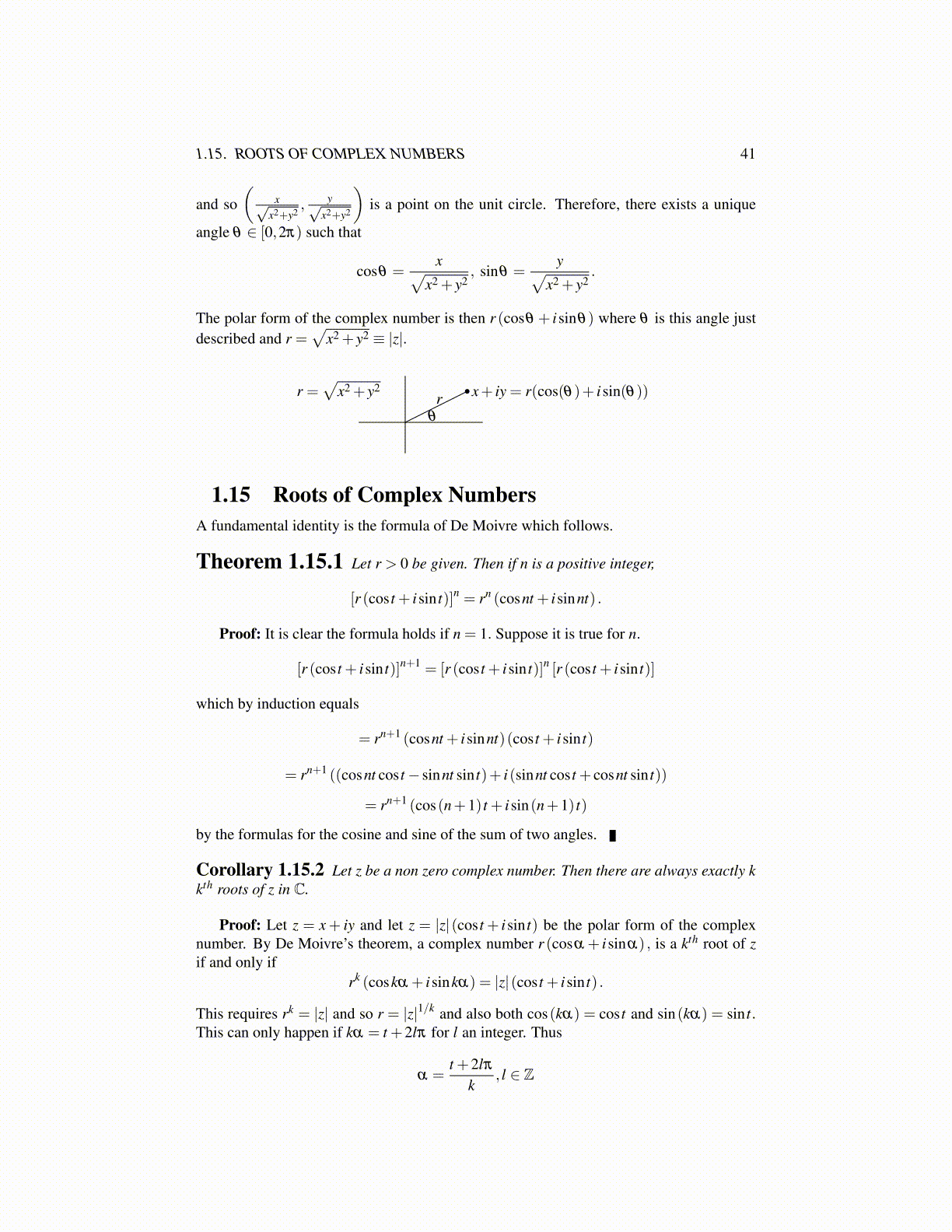
1.15. ROOTS OF COMPLEX NUMBERS 41
and so(
x√x2+y2
, y√x2+y2
)is a point on the unit circle. Therefore, there exists a unique
angle θ ∈ [0,2π) such that
cosθ =x√
x2 + y2, sinθ =
y√x2 + y2
.
The polar form of the complex number is then r (cosθ + isinθ) where θ is this angle justdescribed and r =
√x2 + y2 ≡ |z|.
θ
x+ iy = r(cos(θ)+ isin(θ))r =√
x2 + y2r
1.15 Roots of Complex NumbersA fundamental identity is the formula of De Moivre which follows.
Theorem 1.15.1 Let r > 0 be given. Then if n is a positive integer,
[r (cos t + isin t)]n = rn (cosnt + isinnt) .
Proof: It is clear the formula holds if n = 1. Suppose it is true for n.
[r (cos t + isin t)]n+1 = [r (cos t + isin t)]n [r (cos t + isin t)]
which by induction equals
= rn+1 (cosnt + isinnt)(cos t + isin t)
= rn+1 ((cosnt cos t − sinnt sin t)+ i(sinnt cos t + cosnt sin t))
= rn+1 (cos(n+1) t + isin(n+1) t)
by the formulas for the cosine and sine of the sum of two angles.
Corollary 1.15.2 Let z be a non zero complex number. Then there are always exactly kkth roots of z in C.
Proof: Let z = x+ iy and let z = |z|(cos t + isin t) be the polar form of the complexnumber. By De Moivre’s theorem, a complex number r (cosα + isinα) , is a kth root of zif and only if
rk (coskα + isinkα) = |z|(cos t + isin t) .
This requires rk = |z| and so r = |z|1/k and also both cos(kα) = cos t and sin(kα) = sin t.This can only happen if kα = t +2lπ for l an integer. Thus
α =t +2lπ
k, l ∈ Z